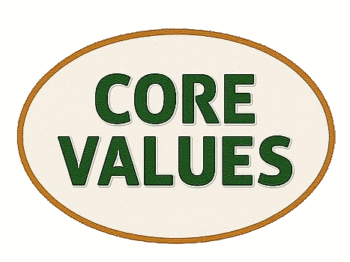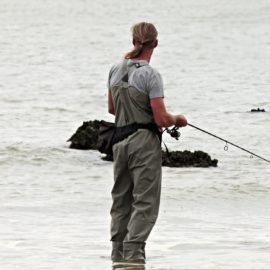
The Greater New Orleans Interfaith Climate Coalition has the following aims as the foundation of its Core Values:
We aim to:
- Realize the hurt we create through our out-of-balance lifeways
- Restore just relationships with our humanity and the Earth
- Rejuvenate harmonious ways for us to live that honor the sacredness of Earth
We look this week at the first aim:
“We aim to realize the hurt we create through our out-of-balance lifeways.”
The overuse and abuse of our planet’s resources, including the overabundance of our physical belongings, are major aspects of being out-of-balance. Robin Wall Kimmerer, in her book “The serviceberry”, writes regarding our consumption of food: “We humans must consume, since we are animals to whom the gift of photosynthesis was not given. But our patterns of gross overconsumption have brought us to the brink of disaster.”
Having brought too many things into our realms, we eventually need to ditch belongings, and we have an overabundance of excuses for doing this. There’s the desire to switch to the “latest model”, or the necessity of replacing an item which died due to its manufacturer’s decisions for planned obsolescence, or overstocking of groceries only to see some reach an unhealthy spoiling point.
The phrase “emergency of trash” is used by Caleb Cray Haynes, a bi-vocational pastor who is also a trash hauler, in his book, “Garbage theology”. He gives the background of the Greek word, gehenna, which is used numerous times in the Christian New Testament and is usually translated into English as “hell”. The valley of Gehenna (Gehinnom in Hebrew), in or near Jerusalem, had been a place where the kings of Judah sacrificed their own children as part of worshipping idols around 600 BCE. About a century prior to Jerusalem’s destruction in 70 CE, that valley began to be used as a dumping ground for the citizens’ waste of all kinds. The subsequent use of the name gehenna to speak of “hell”, which is often seen as a place connected with being unredeemable or totally worthless, was surely not an accident.
There are, of course, many other ways that our lives become out-of-balance with the limits which are necessary for all parts of earthly life to thrive. The hurts we create by being out-of-balance usually include harmful impacts on someone or something else on this earth. The hellish “trash” can be cancer-causing particles from an industrial plant which drift through the air only to be inhaled by small children in the area, a nauseating variety of plastic items in the ocean which end up on an Indonesian village’s beach, an “I-don’t-like-this-anymore” piece of clothing in an ever-growing mountain of rejected clothing in a Chilean desert, or methane releases from food waste which add to our planet’s fever.
“We aim to realize the hurt we create through our out-of-balance lifeways.”
Sources:
- Haynes, Caleb Cray. Garbage theology (McGahan, 2021), p. 106-107.
- Kimmerer, Robin Wall. The serviceberry: abundance and reciprocity in the natural world (Scribner, 2024), p. 63.



